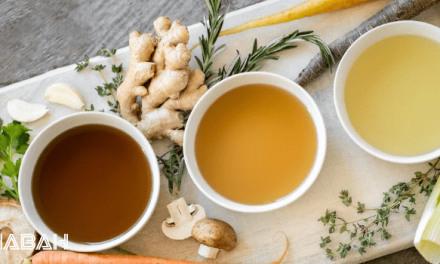Glycerin is commonly used in a wide range of products, including food, cosmetics, and pharmaceuticals, its halal status remains a mystery to many. This article will delve into the truth behind glycerin, explicitly exploring the halal status of two related substances: lecithin and glutamic acid.
Exploring Halal Certification Of Glycerin
Definition of glycerin and its uses
Glycerin, also known as glycerol, is a colorless, odorless liquid that tastes sweet. It has a wide variety of uses:
- As a sweetener in food products
- As a humectant in pharmaceuticals and personal care products
- As an emulsifier
- As a preservative
Some common products containing glycerin:
| Product | Use of Glycerin |
|---|---|
| Baked goods | Sweetener |
| Lotions | Humectant |
| Toothpaste | Humectant |
| Mouthwash | Preservative |
| Cough syrup | Sweetener |
“Glycerin, also known as glycerol, is a colorless, odorless, viscous liquid that has a sweet taste and is hygroscopic.”
Reasons why glycerin could be considered haram
There are two main reasons glycerin may not be permissible for consumption by Muslims:
- Source: Glycerin can be derived from animal fats or vegetable oils, so its source needs to be considered for halal compliance.
- Contamination: If derived from pork or other non-halal animals, it would not be permitted for consumption by Muslims.
“Glycerin derived from pork and other haram meat sources is not Halal.”
Sources of glycerin
Glycerin can come from different sources:
-
Vegetable oils: Glycerin derived from palm, soy, or coconut oils through hydrolysis is considered halal.
“Vegetable glycerin is obtained from natural oils like palm, soy and coconut oil through hydrolysis.”
-
Animal fats: Glycerin derived from beef tallow or pork lard would not be halal.
“The source of glycerin needs to be Halal. Glycerin derived from pork and other haram meat sources is not Halal.”
-
Synthetic: Glycerin produced synthetically from propene gas is halal if no contamination occurs during production.
Positions on glycerin is halal
There are differing positions on whether glycerin is permissible for Muslims:
-
Allowed due to chemical transformation
Some scholars argue the purification process chemically transforms glycerin, making it halal even if originally from an animal source.
“Glycerin derived from vegetable or animal sources is put through several stages of chemical processing that completely purify it from the source. This converts it into a new substance making it permissible.”
-
Prohibited if from animal source
Other scholars believe glycerin remains impure if derived from pork or other non-halal animals, prohibiting its consumption.
“Glycerin is considered impure (najis) if it is extracted from pork or meat from dead animals.”
-
Conditionally allowed depending on source
A common opinion is vegetable glycerin is permitted, while animal-derived glycerin is prohibited unless it has undergone complete chemical transformation removing impurities.
“Glycerin derived from plant matter is halal. Glycerin derived from animal matter is only halal if it has undergone a complete transformation.”
Methods for determining source
To determine if glycerin is halal, Muslims can:
- Check ingredient labels for source
- Contact manufacturers about their glycerin sources and purification methods
- Look for halal and kosher certifications on products containing glycerin
Alternatives to glycerin
If glycerin source is unknown, Muslims may choose to avoid it or use substitutes like:
- Vegetable oils for sweetening
- Honey, maple syrup, agave nectar for sweetness
- Plant oils like coconut oil for skin care
Frequently Asked Questions – Is Glycerin Halal?
What is glycerin?
Glycerin, also known as glycerine, is a syrupy substance that is commonly used in various products such as cosmetics, toothpaste, creams, and soaps. It is a humectant, which means it attracts and retains moisture.
What does “halal” mean?
“Halal” refers to something that is permissible or allowed according to Islamic law. It relates to the sourcing, preparation, and consumption of food, as well as other products, which must adhere to specific Islamic dietary guidelines.
What is the halal status of glycerin?
The halal status of glycerin depends on its source. If glycerin is derived from plant sources, such as vegetable oil, it is generally considered halal. On the other hand, if it is derived from animal fat or any non-halal source, it would be considered haram (forbidden).
Can glycerin be derived from animal fat?
Yes, glycerin can be derived from animal fat. Glycerin can potentially be sourced from both plant and animal sources, so it is essential to determine the origin of the glycerin to ascertain its halal status.
How can I determine the halal status of glycerin?
To determine the halal status of glycerin, it is recommended to look for products that have halal certification. Halal certification ensures that the glycerin used in the product is sourced from halal sources and has undergone appropriate processing according to Islamic guidelines.
Is glycerin considered halal in cosmetic products?
In most cases, glycerin derived from plant sources is considered halal in cosmetic products. However, it is advisable to check the ingredients list or look for halal certification on the product to ensure its halal status.
Can glycerin be used in toothpaste?
Yes, glycerin is commonly used as an ingredient in toothpaste due to its humectant properties. It helps retain moisture and prevents the toothpaste from drying out. As long as the glycerin used in toothpaste is halal, it can be considered permissible for use.
What are the halal sources of glycerin?
The halal sources of glycerin include vegetable oils, such as soybean oil, palm oil, or coconut oil.
Conclusion
Summary of key points
-
Glycerin can be derived from vegetable or animal sources, impacting its halal status.
-
There are varied scholarly opinions on whether chemically-processed animal glycerin can become halal through transformation.
-
When the original source is unknown or doubtful, it is best for Muslims to avoid glycerin, unless vegetable origin can be assured.
“If the source of the glycerin is plant then it is Halal, if it is from pork fat then it is Haram.
Suggestions for further research
Further research could involve:
-
Investigating the most common manufacturing methods of commercial glycerin to understand level of chemical processing and purification.
-
Examining purity regulations and processing standards required for certifying glycerin as halal.
-
Analyzing chemical properties of animal-derived glycerin before and after processing to determine if chemical transformation occurs.
“More research needs to be done on the level of chemical transformation of animal-derived glycerin during processing before conclusively determining its halal status.”





